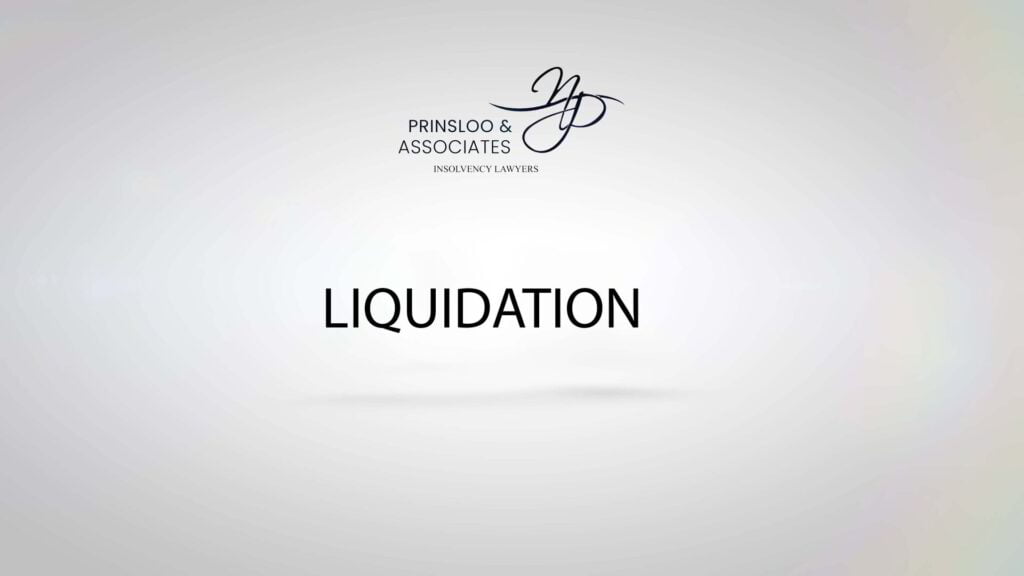Liquidation in South Africa : A company must liquidate when it is unable to pay its debts, starting at R100 and more. If a creditor obtained a judgement against a company and the company still cannot pay the debt, and there is no bona fide dispute in connection with the validity of the claim, then the company is deemed insolvent and can liquidate or be liquidated. Also, if a company’s liabilities exceed its assets, then the company can be liquidated.
Liquidation is to help companies get rid of debt through a structured process. We have helped over 1500 business owners to liquidate their businesses who are still happily trading, but without the debt.
When must a company be Liquidated
As soon as a company cannot pay its debt, it must legally Liquidate. Note the word “must”. The Companies Act says that a director must liquidate a company as soon as the company cannot pay its debt, otherwise the director can be held personally liable for the debt of the company.
How is a company liquidated
A company can be liquidated by the High Court, or it can be liquidated at the Companies Offices. A liquidation can be voluntary (if the directors sign a resolution to liquidate the company) or a creditor can bring a forced liquidation application.
What is the effect of Liquidation
Liquidation causes an equitable distribution of the company’s assets for the benefit of the creditors. This means that instead of just one creditor perhaps attaching the assets of a debtor company and keeping the proceeds, which means only one creditor’s claim gets (mostly) satisfied and the rest get nothing, liquidation will cause that the assets must be sold by a liquidator and the proceeds divided amongst creditors in a certain ranking order.
How long does it take to liquidate a company
A High Court liquidation can take up to two months. A Companies Office liquidation can take just a week.
What happens after Liquidation
The Liquidator will take control of the assets of the company (if any). The Liquidator will deal with creditors. The LIquidator will sell assets if any (the director can buy it back). Proceeds will be paid to creditors after costs were deducted. The company does not exist any longer. Creditors may not take legal action against the company and must take part in the winding up process.
The winding-up process
The Liquidator’s process can take 6 months to a year (or longer depending on what happens in the winding-up process). The reasons why it can take longer is because there are time periods which the Liquidator is subject to; the Master must approve certain steps and this can take time as it depends of the efficiency of the Master’s offices: the company may still be trading and the LIquidator would want to sell it as a going concern and this can take time; there may be late remittance of claims by creditors or it can take time to sell the assets of the company if there were assets.

